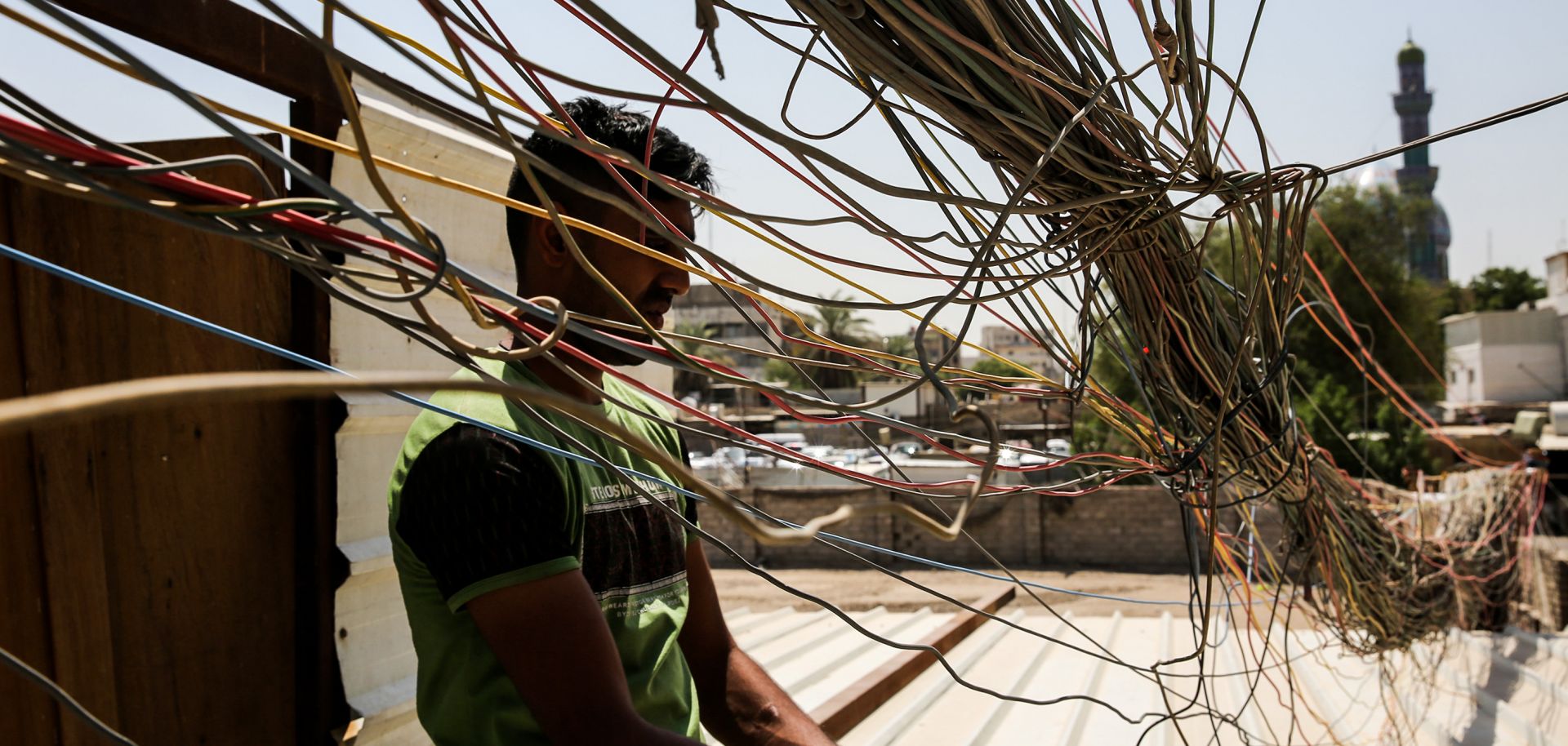ASSESSMENTS
Iraq's Electricity Sector Is Caught in the U.S.-Iran Power Struggle
Dec 11, 2018 | 09:00 GMT

A man checks the wiring on electric cables that run to home on Saadoun Street in Baghdad on July 29, 2018. Chronic power shortages have forced residents to buy electricity from private entrepreneurs who run generators on street corners across the country.
(SABAH ARAR/AFP/Getty Images)
Highlights
- Iraq’s electricity sector has been in near-constant crisis mode since the fall of Saddam Hussein and will likely remain troubled in the immediate future.
- Chronic brownouts and blackouts will continue to plague the Iraqi electric grid, driving protests over shortages, as its aging and inefficient infrastructure cannot keep up with the growth in demand despite new investment.
- Iraq will seek to diversify away from Iran by investing in new domestic infrastructure and importing more from other neighbors, but this long-term strategy will not help in the short term.
Subscribe Now
SubscribeAlready have an account?
